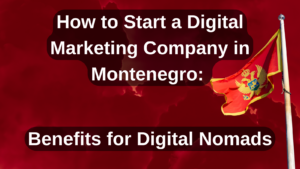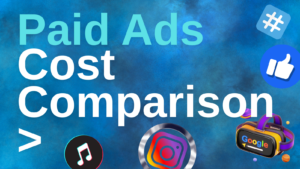SEO and social media stand as two pillars of digital marketing, each with its unique strengths and roles in shaping online visibility and user engagement. This comprehensive exploration delves into the nuances of SEO and social media, comparing their functionalities, benefits, and how they intersect to amplify a brand’s digital marketing strategy.
The Core Principles of Effective SEO Strategy
Mastering Search Engine Optimization (SEO) demands a nuanced understanding of how search engines work and what they value in website content and structure. It’s a multifaceted discipline that blends technical website optimization with the creation of engaging, high-quality content that answers the queries of its intended audience. Effective SEO is not merely about stuffing pages with keywords but about crafting a user experience that is both informative and easy to navigate.
A fundamental aspect of SEO involves conducting thorough keyword research to identify the terms and phrases that potential customers are using to find products or services in your industry. This research not only informs the content creation process but also guides the optimization of on-page elements, ensuring that every page on your site is aligned with user intent and capable of ranking well in SERPs.
SEO extends beyond the confines of your own website to include off-page elements such as backlinks, which are links from other reputable sites to your own. These serve as endorsements of your site’s credibility and authority, signaling to search engines that your content is valuable and worthy of a higher ranking. Cultivating a strong backlink profile involves creating content that is not only valuable to your audience but also shareable and worthy of citation by other websites.
In addition to these foundational elements, technical SEO plays a critical role in enhancing website visibility. This includes improving site speed, ensuring mobile responsiveness, and implementing structured data to help search engines understand and index your content more effectively. Technical optimizations make your site more accessible to both search engines and users, improving overall user experience and supporting your site’s climb up the search rankings.
The effectiveness of an SEO strategy is not static; it evolves in response to changes in search engine algorithms and shifts in user behavior. This necessitates a commitment to ongoing learning, monitoring, and adjusting of strategies to stay ahead of the curve. Successful SEO is characterized by a website that not only ranks well but also delivers a user experience that converts visitors into customers, contributing to the overall growth and success of the business.
The Power of Social Media
Social media has transcended its initial role as a digital space for social interaction to become a pivotal element in contemporary digital marketing strategies. Platforms such as Facebook, Twitter, Instagram, and LinkedIn have evolved into dynamic arenas where businesses can cast a wide net, capturing the attention of diverse audiences across the globe. The essence of social media marketing lies in its unparalleled ability to create connections, weaving brands into the fabric of daily user experiences on these platforms.
This digital phenomenon offers an unparalleled advantage by allowing brands to craft content that is not only engaging but also tailored to the nuanced preferences and behaviors of their target audience. Whether it’s a captivating Instagram story, an insightful LinkedIn article, or a tweet that sparks a conversation, the content shared on these platforms has the power to create a ripple effect, significantly amplifying brand visibility beyond traditional marketing boundaries.
The interactive nature of social media sets it apart from other marketing channels. It provides businesses with direct access to their audience’s thoughts, preferences, and feedback, turning every post, comment, and like into a potential opportunity for engagement. This level of interaction fosters a sense of community and loyalty among followers, transforming passive viewers into active participants in the brand’s narrative.
Social media’s real-time capabilities empower businesses to launch marketing efforts that are not only timely but also highly relevant to current trends and conversations. From flash sales announced via Instagram to customer service inquiries addressed through Twitter, social media enables brands to stay agile, responding to the market and their audience’s needs with unprecedented speed.
The metrics used to gauge the success of social media efforts—engagement rates, follower growth, and website traffic—offer tangible insights into how well a brand resonates with its audience. These metrics, when analyzed thoughtfully, can guide businesses in refining their strategies, ensuring content remains compelling and aligned with audience expectations. Furthermore, the analytics provided by social media platforms can help businesses understand the broader impact of their digital presence, informing decisions that extend beyond marketing into product development and customer service strategies.
The power of social media in today’s digital marketing landscape cannot be overstated. It offers a multifaceted platform for brands to tell their story, engage with their audience, and build a community around their products or services. By leveraging the unique strengths of each social media platform and aligning them with their overall marketing strategy, businesses can achieve a level of visibility and engagement that drives growth and fosters lasting relationships with their audience.
SEO vs. Social Media – A Comparative Analysis
The digital marketing landscape is a complex environment where strategies intertwine to create a cohesive online presence for brands. SEO and social media, while distinct in their methodologies and objectives, collaborate to form a robust foundation for digital visibility and user engagement. This comparative analysis delves into the nuances of both strategies, highlighting their unique contributions and synergistic potential in enhancing a brand’s digital footprint.
Audience Reach and Engagement
SEO stands as the beacon for attracting users with intent. It meticulously aligns website content with the queries of users actively seeking solutions, making it a powerful tool for drawing in an audience ready to engage or convert. This targeted approach ensures that the traffic driven by SEO is highly relevant, increasing the likelihood of fulfilling user needs and achieving business goals. The precision of SEO in matching user intent with content relevance underscores its fundamental role in building a qualitatively engaged audience.
Conversely, social media breaks the barriers of passive engagement by fostering a community around a brand. Platforms like Instagram, Twitter, and Facebook serve as arenas for brands to showcase their personality, values, and offerings in a context that encourages interaction. Social media’s strength lies in its ability to reach a vast, diverse audience, including those who may not have realized their interest in your brand or offerings. Through compelling storytelling, interactive posts, and direct conversations, social media captivates users, transforming casual browsers into engaged followers and brand advocates.
Content Strategy
The strategic deployment of content significantly differs between SEO and social media, yet both aim to captivate and provide value to their respective audiences. SEO-focused content is crafted with a dual purpose: to satisfy the user’s quest for information and to meet the technical criteria set forth by search engines for ranking purposes. This involves a careful balance of incorporating keywords, ensuring site speed and mobile responsiveness, and structuring content in a way that search engines deem valuable. The goal is to create content that not only ranks well but also thoroughly addresses the user’s search intent, providing comprehensive answers and solutions.
On the flip side, social media content thrives on immediacy, relevance, and engagement. It’s designed to be eye-catching, easily digestible, and highly shareable, aiming to spark conversations, encourage shares, and increase brand visibility organically. Each piece of social media content is an opportunity to express brand identity, connect with users on a personal level, and drive engagement through likes, comments, and shares. The virality aspect of social media content can significantly amplify a brand’s reach, making it an essential tool for building brand awareness and fostering a sense of community among followers.
Measurability and ROI
Assessing the impact and return on investment (ROI) of SEO versus social media presents a nuanced landscape of digital marketing metrics and outcomes. SEO, with its inherent focus on organic search performance, tends to unfold its benefits over a more extended period. This long-term investment is crucial for building a sustainable online presence, enhancing site authority, and gradually increasing traffic volume through higher search engine rankings. The metrics involved—such as keyword rankings, organic traffic growth, and click-through rates—require meticulous tracking and analysis to fully understand SEO’s contribution to business objectives. While the path from visibility to conversion in SEO may be more protracted, the quality and consistency of traffic it delivers often result in higher conversion rates and customer retention over time.
Contrastingly, social media marketing provides immediate feedback on engagement levels through likes, shares, comments, and followers. These metrics offer valuable insights into how content resonates with audiences, allowing for rapid adjustments and optimization. However, the direct correlation between social media engagement and immediate sales or conversions can be less straightforward. Social media’s strength lies in its ability to build brand awareness, foster relationships, and create a loyal community—factors that contribute to long-term ROI but may not immediately translate into sales. The challenge and opportunity within social media metrics lie in leveraging this engagement to nurture leads through the sales funnel, ultimately impacting the bottom line.
Integrating SEO and Social Media for Maximum Impact
The synergistic integration of SEO and social media strategies unlocks a comprehensive approach to digital marketing that leverages the distinct advantages of each. SEO’s foundation in enhancing long-term online visibility pairs seamlessly with the dynamic, interactive nature of social media, creating a multifaceted digital presence that engages audiences at every stage of their journey. This integrated strategy not only elevates brand awareness but also strengthens the pathways for audience engagement and conversion.
Incorporating social media activities into an overarching SEO plan amplifies off-page SEO efforts significantly. Sharing well-optimized content from the website onto social platforms can drive substantial traffic back to the site, improving search engine rankings through increased page views and reducing bounce rates. Moreover, social signals—such as shares, likes, and comments—while not a direct ranking factor, can indirectly influence SEO by increasing content visibility and link opportunities.
Conversely, applying SEO insights to social media content creation and distribution ensures that the content not only engages but also reaches a wider audience. Keyword research, typically central to SEO, can inform social media content themes, hashtags, and descriptions, making posts more discoverable both on social platforms and search engines. This reciprocal flow of strategies enhances the overall digital marketing effort, ensuring content performs optimally across channels.
Conclusion
In the landscape of digital marketing, both SEO and social media hold critical roles. SEO establishes a solid foundation for a website’s online presence, attracting organic traffic through strategic optimization. Social media, with its dynamic and interactive capabilities, builds upon this foundation by engaging directly with audiences and fostering community around a brand. Together, they create a comprehensive approach to digital marketing that maximizes visibility, engagement, and conversion opportunities.





